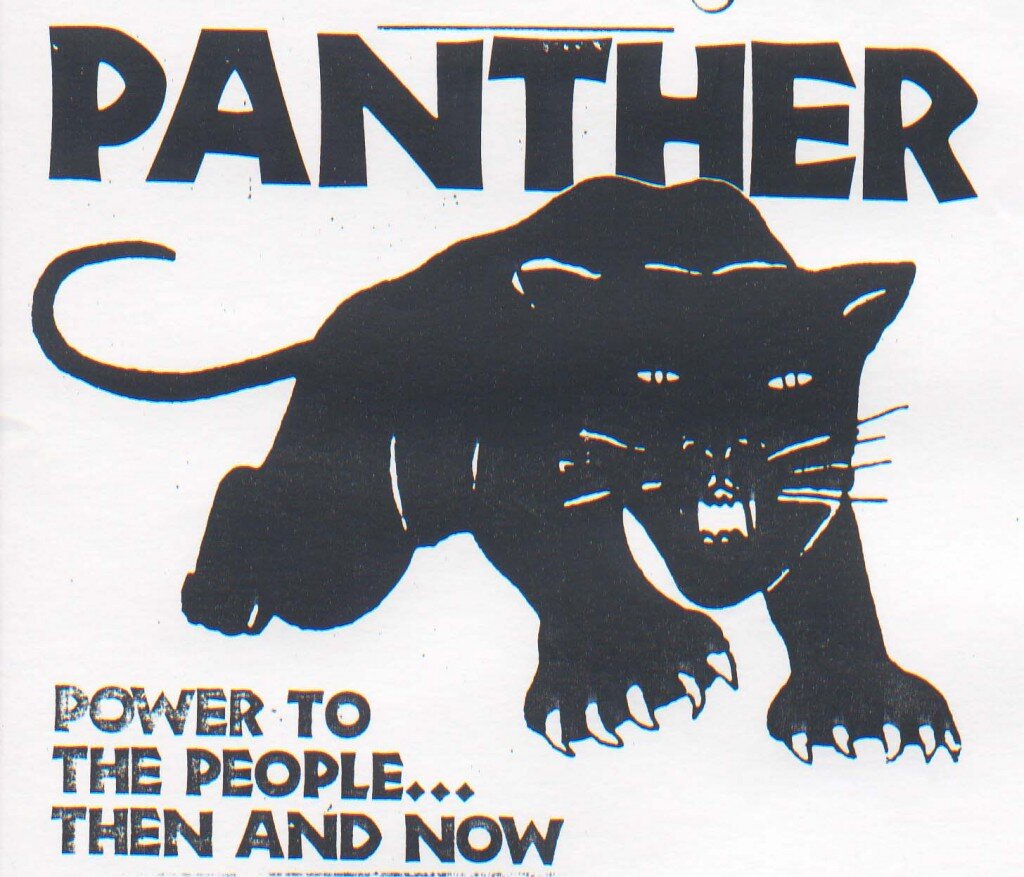All Power to the People: 50 years of struggle for community control over the police
06/26/20
An interview with Glen Ford
By Brian Mier
Glen Ford got his first media job as a newsman on a radio station owned by James Brown in Augusta, Georgia in 1970. Shortly thereafter, he affiliated with the Black Panther Party. During following decades, Mr. Ford was the owner and host of several different nationally syndicated radio and television programs. In 2006, together with Margaret Kimberley and the late Bruce Dixon, a former Chicago Black Panther Party member, he founded the Black Agenda Report, which is currently one of the most important voices of the U.S. anti-imperialist left. I spoke with him on June 19th about the protests happening across the United States and how they relate to the historic struggle of the Black Panther Party. The following is an excerpt from the interview transcript edited and selected for its relevance to the current struggle.
Some people are comparing what's happening on the streets of the US right now disfavorably with what happened during the Black Panthers movement, although both of them appear to have stemmed from structural racism in the police and structural racist violence. Could you compare the objectives and tactics used between the Black Panthers with what's happening right now on the streets?
There there has been no fundamental change in power relationships in this country in the past 50 years, since the days of the Panther Party. There are simply now a whole host of blacks in the Democratic Party who administer and manage the mass black incarceration regime that was imposed after the black rebellions - and that includes the activities of the Black Panther Party - of the late 60s. The way the regime answered the black rebellions was to impose a black mass incarceration regime, which resulted in the prison population exploding from only 200,000 in 1970 to 2.3 million today. That's the scale of the spread of this regime. And it was aimed at two things. Number one, criminalizing the black population as a whole so that a virtual police state could be imposed selectively on black America. And it was also a counter insurgency operation that targeted activists, radical activists like the Panther Party, but others as well, for neutralization on a much quicker scale.
There are similarities between the beginnings of the movement that became a great people's movement in the 1960s and what is happening today. Many of the folks who’ve been in the streets shouting slogans have been calling for community control of the police. Community control of the police was probably the most important demand of the Black Panther Party.
The practice in the streets that they became world famous for was to initiate community patrols of the police. That is, the Panthers would get in cars and tail the cops as the cops went on their patrols. If they noted the police abusing any black citizens, they'd get out of the cars – armed and with cameras - and take notes from a distance without interfering. Those patrols were based on Community Alert patrols that had been initiated in 1965 in Los Angeles where, basically, neighborhood people did the same thing: tail the police and keep an eye on the police. So one of the premier demands of the Panther Party was that control over the police would be given to the community.
The idea was that the community would hire and fire cops and decide exactly what was the nature of policing. Obviously, we didn't want the police that we controlled to behave like an occupation army, which is the way police behave in every black community. But what what does a community-controlled police force look like? What does it act like? What is it protecting? These were all questions that the Panther Party at least raised. Now, the level of repression that came down on the Party from the FBI, which declared it the number one national security threat to the United States, prevented us from fully exploring the possibilities of community control of the police. The Party was much more concerned about surviving into the next day under this police assault. But those questions are starting to be examined by groups currently in the US, all of whom have been out on the streets during the past several weeks, who are today calling for community control of the police. And it is a full blown movement demand with organizations in twenty two cities having joined the coalition that is pressing for community control of the police. In Chicago, where the movement is strongest, 19 of the 50 member City Council co-sponsored a measure for community control of the police. And these community control mechanisms bear no resemblance to citizen police review boards. In the case of Chicago, these would be community boards that are elected by the local communities. And those elected members would hire and fire cops and they would write the guidelines on police behavior, not only the circumstances in which they could use force and of the simple measures like that, but the guidelines that basically define what policing is. So in Chicago they've already put down on paper and made into legislation the ideas that were fleshed out or that were beginning to be articulated by the Panther Party 50 years ago.
Where do you think this movement is going to go from here?
Look, these Democrats in office in Minneapolis and New York and in almost all of the big cities, they're not going to disband the police. They may claim to be defunding the police. The fact of the matter is we are now in a Great Depression. If it has any resemblance to the great meltdown of twelve years ago, then local and state spending in government is going to drastically decrease anyway because tax revenues drastically decrease in great depressions and in meltdowns.
This will be passed off as a defunding of police - cuts that were going to occur anyway. But you're not going to get rid of the police as they are by relying on Democratic politicians that have always supported and strengthened the impunity of police in the past. That's the job of a movement. It's a job for community control of the police. We're the ones, the people on the ground in the communities seeking self-determination. That is real democracy.
We are the ones who have to decide what the nature of policing is. We do know that today and this applies to all the police forces in the United States, that 90 percent of their man-hours, 90 percent of their day has nothing to do with making felony arrests. It has to do with establishing a military type presence and scaring people supposedly into doing the right thing, whatever that is. It has to do with domestic disputes. It has to do with dealing with people who have mental problems because we have no mental health system in the United States either.
Virtually all of the mental health facilities were shut down back in the 1960s and 1970s. The crazy people are out in the streets and the police are killing them in record numbers. So we have to define what police is. That's part of the community control movement and the defund the police movement will not be complete until it demands that those funds that supposedly are diverted from the police department to social programs will also be in the control of the community, that those social programs that supposedly substitute for the police presence will be controlled by the community.
Because any righteous social worker in the US will tell you that the government social program they work for is not an ally of its clients, not an ally of the people in the community who are supposed to be the beneficiaries of the service. In many respects, these social programs are enemies of the people. So they need to be brought under community control too before we can talk about substituting new institutions, new forces for the job or the functions that the police currently and badly and lethally and murderously occupy.
It does looks like some change is happening. And not all of the change is stuff that the Democratic Party would normally support if it weren't for all of this pressure, if they hadn't burned down that police station in Minneapolis and if there weren't all these people on the streets. What are some of the positive results of these protests?
It is positive when they claim that they are in agreement that the police should be disbanded and that the present structure cannot be reformed, but they are not going to do the reforms. They were forced by the folks in the street into echoing the slogans of Black Lives Matter. That does not mean that they are really converted into into police reformers. They're not. They are going to try to get away with as little as possible. They still answer to the people who control the Democratic Party. And that's the oligarchy. In fact, one of the oligarchs, Bloomberg, officially entered the race for president and was endorsed by an embarrassing number of black mayors. So we know who runs the Democratic Party and they are the people who want the warrior cop to defend their billions, to defend their interests. And their interests are throughout society- they own the goddamn place. So what we have to do - and it doesn't mean calling a halt to these demonstrations - and this is the hard part, is get down to the drudge work, the down and dirty work, the day to day work of building real constituencies for community control of the police. The really hard work of figuring out how the social services that supposedly will benefit from divestment of funds from the police, how they should actually be working. They need reform as well. And that means contacting and working very closely with black and latinx and progressive white social workers, who can tell you the real deal about the failings of the current social services distribution network.
This is all real hard work. This is the work of a lifetime. But this work is now possible because of the wave of demonstrations and, in principle, because of the concessions that the rulers have made, or rather the political servants of the rulers have made. This is the opening that we need to rush through and tackle a whole host of social reorganization and peoples empowerment projects.


